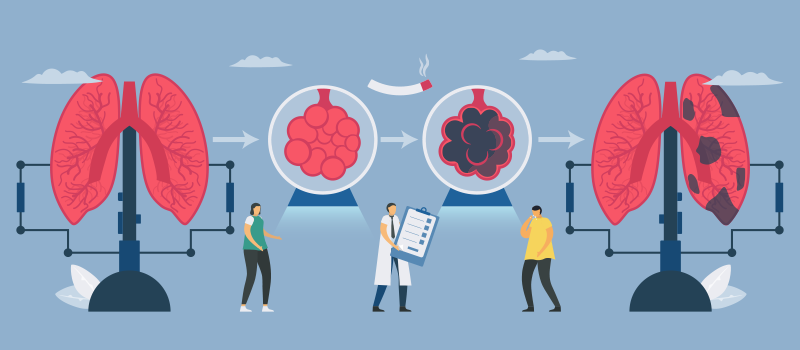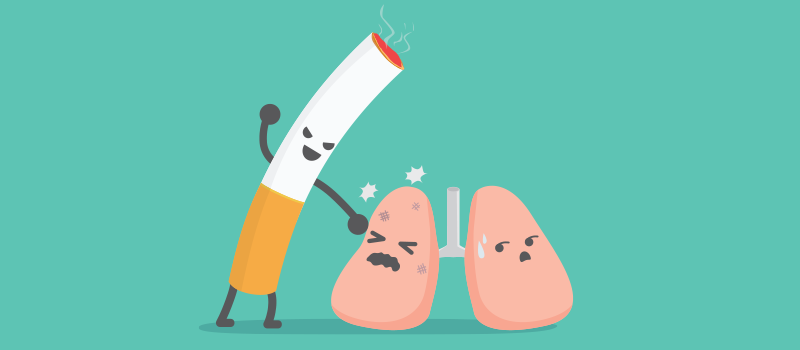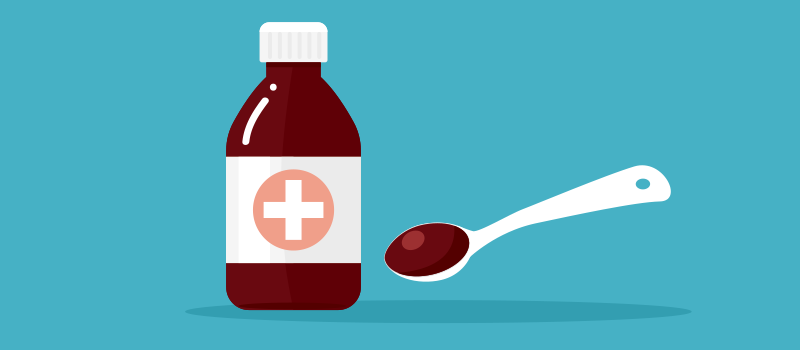What’s the Buzz
The Bee Healthy Blog
Dry Cough Remedies You Need To Know

Coughing is a natural reflex and defense mechanism by which the body removes irritants from the respiratory tract. Though coughing can be unpleasant or even painful if it happens for a long time, coughing protects the body by removing irritants from your lungs and airways. There are different types of coughs based on their duration and the sound they make. Coughing sound, the duration of the cough, along with a physical examination are some of the factors that your doctor uses to determine the type of cough and appropriate treatment.
In this article, we’ll discuss different types of coughs, cough remedies, and the “pros” and “cons” of different treatments.
What are the different types of cough?
Besides the coughing sound and its duration, it is very common for a cough to be defined based on the presence of mucus. You may have heard the term “wet cough” and “dry cough.”
A productive or wet cough produces phlegm or mucus, while a non-productive or dry cough does not produce any mucus. An acute cough begins suddenly and lasts approximately 2 to 3 weeks, while a chronic cough, also referred to as a persistent cough, lasts longer than 8 weeks.
What causes a cough?
Postnasal drip
Have you ever felt a tickly feeling in the back of your throat while you have a cold, flu, or sinus infection? “Postnasal drip” is the medical term referring to mucus dripping down your throat.
Certain medical problems
A dry, hacking cough not only affects your quality of life but, in some cases can be a sign of underlying medical problems such as allergies and gastroesophageal reflux disease (GERD).
GERD and allergies are common health problems that are fairly easy to treat; however, although not often, a cough can be a sign of more serious problems such as chronic obstructive pulmonary disease (COPD), asthma, and pulmonary fibrosis.
Angiotensin-converting enzyme inhibitors (ACE inhibitors) are a drug class used to treat high blood pressure. Lisinopril, captopril, and enalapril are some of the common agents of this class. ACE inhibitors are known to cause dry cough in up to 40% of people who take this medication. In most cases, people have to stop taking an ACE inhibitor due to dry cough.
Environmental irritants
As mentioned above, many health conditions can cause dry cough; keep in mind that besides underlying health conditions, environmental factors can also cause a cough. Many people think only cigarette smoke can cause coughing; in fact, environmental factors also include indoor irritants such as dust, mold, and pet dander.
Infections of the respiratory tract
Upper respiratory tract infections (URTIs or URIs) are some of the most common causes of a cough, and most are caused by a cold or flu virus. Viral infections of the respiratory tract are more prevalent than those caused by bacteria. There is no “cut-and-dried” information regarding the exact cause for each type of cough; for example, cold or flu and coronavirus are typically present with dry cough; however, though not as common, a productive cough can occur in some cases.
OTC Medications for Dry Cough
The number of over-the-counter cough and cold medicines can be overwhelming, especially when you aren’t feeling well or your child is sick. There is a wide variety of cough and cold products available to soothe dry cough and reduce throat irritation. Keep in mind that there are medications used for cough relief exclusively -- they are called “antitussives.” Despite the vast options for cough remedies, these OTC products contain the same few active ingredients with different combinations and strengths. Once you understand the role of each active ingredient, choosing a cough and cold product becomes less intimidating.
Suppressants (Antitussives)
These cough medicines work by blocking the cough reflex. Dextromethorphan (DXM) is a common cough suppressant that was approved by the U.S. Food and Drug Administration (FDA) in 1958. Dextromethorphan remains one of the most commonly-used ingredients in OTC cough and cold medicines such as Robitussin and Delsym. However, DXM is usually paired with guaifenesin or other active ingredients in combination products such as Vicks 44 Cough and Cold and Vicks DayQuil/NyQuil.
Expectorants
Cough expectorants thin mucus and phlegm, making it easier to cough up and remove mucus from your throat -- this is why expectorants are often used for productive or “wet” cough. Guaifenesin is the only OTC expectorant available in the US. Similar to dextromethorphan, there are “guaifenesin-only” products such as the “plain” Mucinex.
Most of the time, guaifenesin is paired with dextromethorphan or other active ingredients in OTC cough and cold products. Mucinex DM, Vicks DayQuil, and NyQuil are a few examples of OTC products containing guaifenesin and other ingredients.
Pharmacist tip: Drinking plenty of water not only helps you stay hydrated but also helps loosen mucus; as a result, water helps guaifenesin cough up throat irritants.
Decongestants
Decongestants like pseudoephedrine (Sudafed), phenylephrine (Neo-Synephrine), and oxymetazoline (Afrin) are used to treat nasal and sinus congestion during a common cold. You may wonder how decongestants like Sudafed oral tablets or the nasal spray Afrin can help with coughing. By shrinking the swelling of the tissues inside of the nose, decongestants reduce postnasal drip -- one of the main causes of dry cough.
You should talk to your doctor or pharmacist before using these medications. Considering that decongestants should be used for a short period of time, let your doctor know if you don’t see any improvement or your symptoms get worse.
Pharmacist tip: Compared to oral decongestants, nasal sprays carry more risk of rebound congestion - constant nose stuffiness that is hard to treat due to the overuse of decongestant nasal spray. Discuss with your doctor the risks and benefits of different decongestants, as the oral agents also carry side effects.
Antihistamines
Antihistamines interfere with histamines’ activities. As you may know, histamines are responsible for allergy symptoms such as a runny, itchy nose and watery eyes. So, what are the roles of antihistamines in cough remedies? The answer is that not all antihistamines, but only the older generation of antihistamines, have a unique function where they reduce mucus secretion while widening the airways making breathing easier.
Coughs in Children
A cough is one of the most common reasons for a trip to the pediatrician. Same as adults, there are many contributing factors for coughs in children, including throat irritants, bacterial infections, or other underlying health conditions. Therefore, you should contact the pediatrician as soon as possible, as they can recommend a safe and effective cough remedy for your child.
Children have not yet developed a robust immune system; for this reason, children are more prone to contagious illnesses such as whooping cough, also referred to as pertussis.
Oral liquid medications are for children and adults with swallowing problems. You should always use a medication measuring device to get the most accurate liquid medication dosing. Oral dosing syringes are commonly-used since it is free and easy to use. Other measuring devices include medicine cups and medicine droppers. Tablespoons and other household items should not be used to measure liquid medicines.
Pharmacist tips:
-Vaccination is the key to keeping your little ones healthy during the first few years; DTap and Tdap vaccines provide protection against whooping cough.
-Keeping extra oral syringes in your medicine cabinet can be handy, especially during the peak of the cold and flu season between early December and March.
-Drinking water to keep you hydrated is crucial while your body is fighting against an infection. Instead of water, an electrolyte solution such as Pedialyte is a good option for children.
OTC vs. Prescription Medicines for Dry Cough
If you have a chronic dry cough, OTC cough medicines may or may not adequately relieve your symptoms. In this case, your healthcare provider may prescribe a cough medicine based on your symptoms, health history, and concurrent medications. Keep in mind that in order to treat coughing effectively, underlying medical conditions must be addressed.
Below are a few examples of underlying health conditions that cause cough:
- Antibiotics for coughs and sore throats from a bacterial infection.
- Oral antihistamines for seasonal allergies.
- Inhaled corticosteroids for asthma.
- Proton-pump inhibitors or histamine blockers for acid reflux.
- Antiviral medications like Tamiflu for viral infection.
Home Remedies for Dry Cough
Several home remedies can provide relief from symptoms of the common cold and flu, including dry cough, sore throat, stuffy nose, runny nose, sneezing, and congestion. These remedies can be used along with OTC products, such as cough drops and other dry cough remedies, to help you feel better.
Keep in mind that many of these home remedies have not been proven effective by scientific studies. Also, not all home remedies are suitable for babies and children. Always check with your child’s doctor before giving them OTC cough suppressants or natural dry cough remedies.
Here are some ways to get relief from a dry cough and sore throat:
- Staying well hydrated keeps the throat moist to help with irritation and pain from a dry cough. Drinking warm water is recommended, as warm water soothes irritated throat tissues and provides relief from symptoms like dry cough and runny nose.
- Avoiding spicy foods can prevent further irritation of the throat.
- Medicated lozenges like menthol cough drops help to cool and soothe irritated tissues in the throat.
- A cool mist humidifier adds moisture to the air and provides relief from dry coughs due to dry air in heated homes. Using a humidifier overnight can relieve night coughing.
- An air purifier removes irritants like pollen, dust, and pet dander from indoor air.
- Warm tea, soup, or broth can help to loosen mucus and soothe an inflamed throat.
- A teaspoon of honey added to a cup of warm water or ginger tea is one of the best-known natural remedies for dry coughing. Honey has anti-inflammatory properties and can speed up recovery from a respiratory infection.
- Saltwater gargles soothe the respiratory tract and kill bacteria in the mouth and throat. Gargles also help to reduce hoarseness, sneezing, and stuffy nose.
- Steam inhalation relieves dry cough by adding moisture to the throat tissues. A few drops of essential oils added to boiling water can work very well for both a dry cough and a productive cough. You can also take a steamy hot shower for steam inhalation.
- Herbs such as peppermint, marshmallow root extract, thyme, marjoram, turmeric, garlic, ginger, capsaicin, and licorice root are believed to have antioxidant and anti-inflammatory properties. These herbs may provide relief from a dry cough. They can be brewed into teas or added to other recipes. You can also purchase a herbal anti-inflammatory compound as a supplement.
- Bromelain is an enzyme found in pineapple juice. It is believed to reduce swelling and irritation in throat tissues. Natural, product-derived drugs containing bromelain may help with a dry cough.
- Vitamin supplements and probiotics can support the body in healing from an infection.
When to see a doctor for dry cough?
Dry cough can be caused by air pollution or indoor irritants such as pet hair; in these cases, symptoms can be managed at home with over-the-counter medications like cough syrup and natural remedies for dry cough. Sometimes, coughing can be a sign of more serious health problems such as chronic bronchitis, GERD, or lung cancer. Monitor your symptoms and their duration while watching out for any changes in your body. Below are a few signs indicating that you should be seen by a healthcare professional.
- If your dry cough becomes a persistent dry cough; i.e., coughs lasting more than 8 weeks are considered chronic coughs.
- If your cough is getting worse over time.
- If you have wheezing coughing.
- If your dry cough is accompanied by other symptoms such as fever, chest pain, shortness of breath, or trouble breathing.
This medically reviewed article may not include all the causes and remedies for coughing. Seeking medical care promptly is crucial for your overall health.
References:
- https://my.clevelandclinic.org/health/symptoms/17755-cough
- https://www.cdc.gov/pertussis/about/causes-transmission.html#:~:text=Whooping%20cough%2C%20also%20known%20as,of%20bacteria%20called%20Bordetella%20pertussis.
- https://www.ncbi.nlm.nih.gov/pmc/articles/PMC8176681/#:~:text=Cough%20is%20one%20of%20the,an%20encounter%20in%20primary%20care.
- https://www.cdc.gov/flu/about/season/flu-season.htm
- https://www.ncbi.nlm.nih.gov/books/NBK538216/
- https://www.ahajournals.org/doi/10.1161/01.HYP.38.2.166#:~:text=However%2C%20ACEI%20use%20is%20limited,is%20a%20persistent%20dry%20cough.&text=Dry%20cough%20has%20been%20reported,of%20this%20annoying%20side%20effect.
- https://www.cdc.gov/vaccines/parents/diseases/pertussis.html










SOCIAL